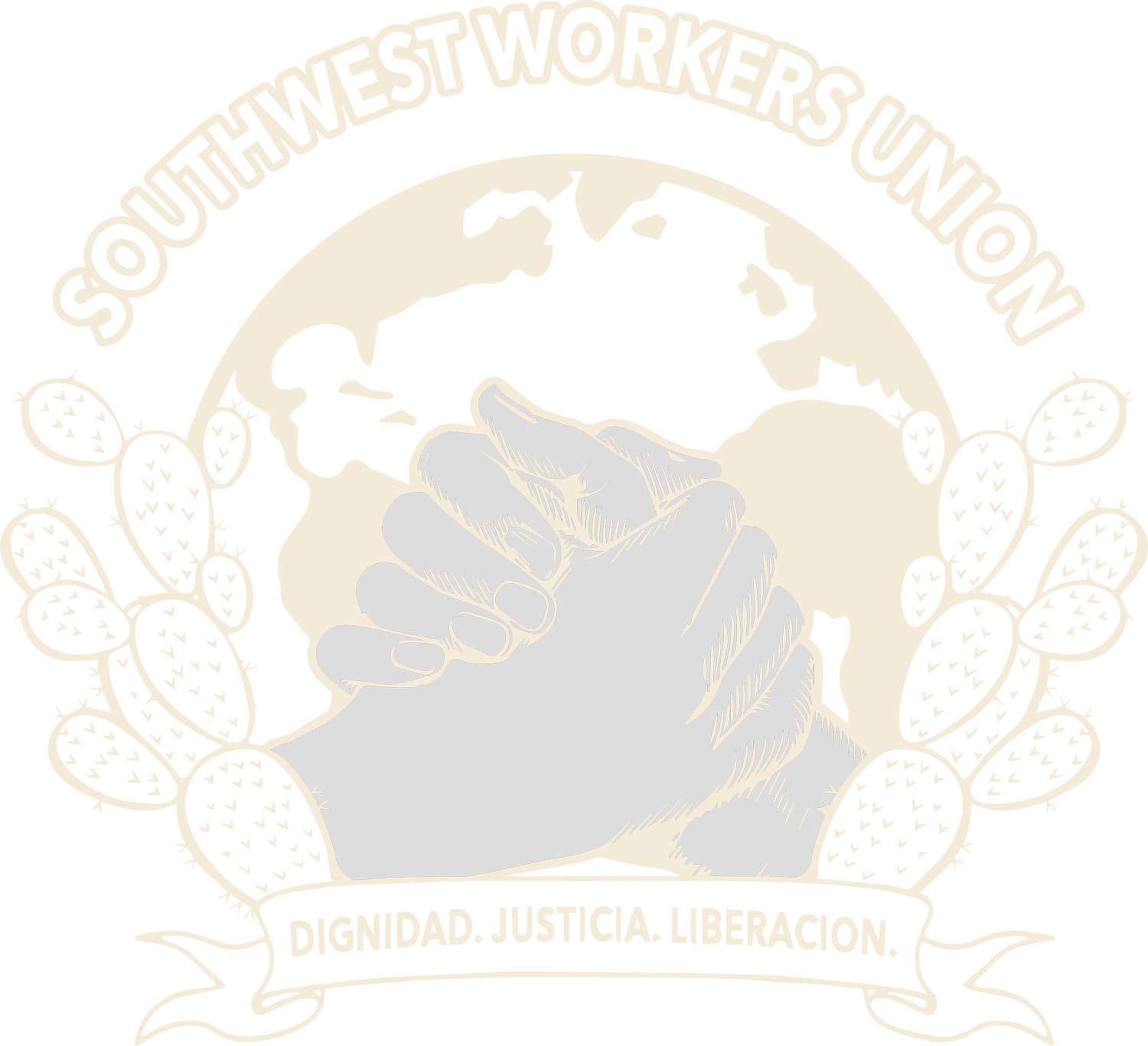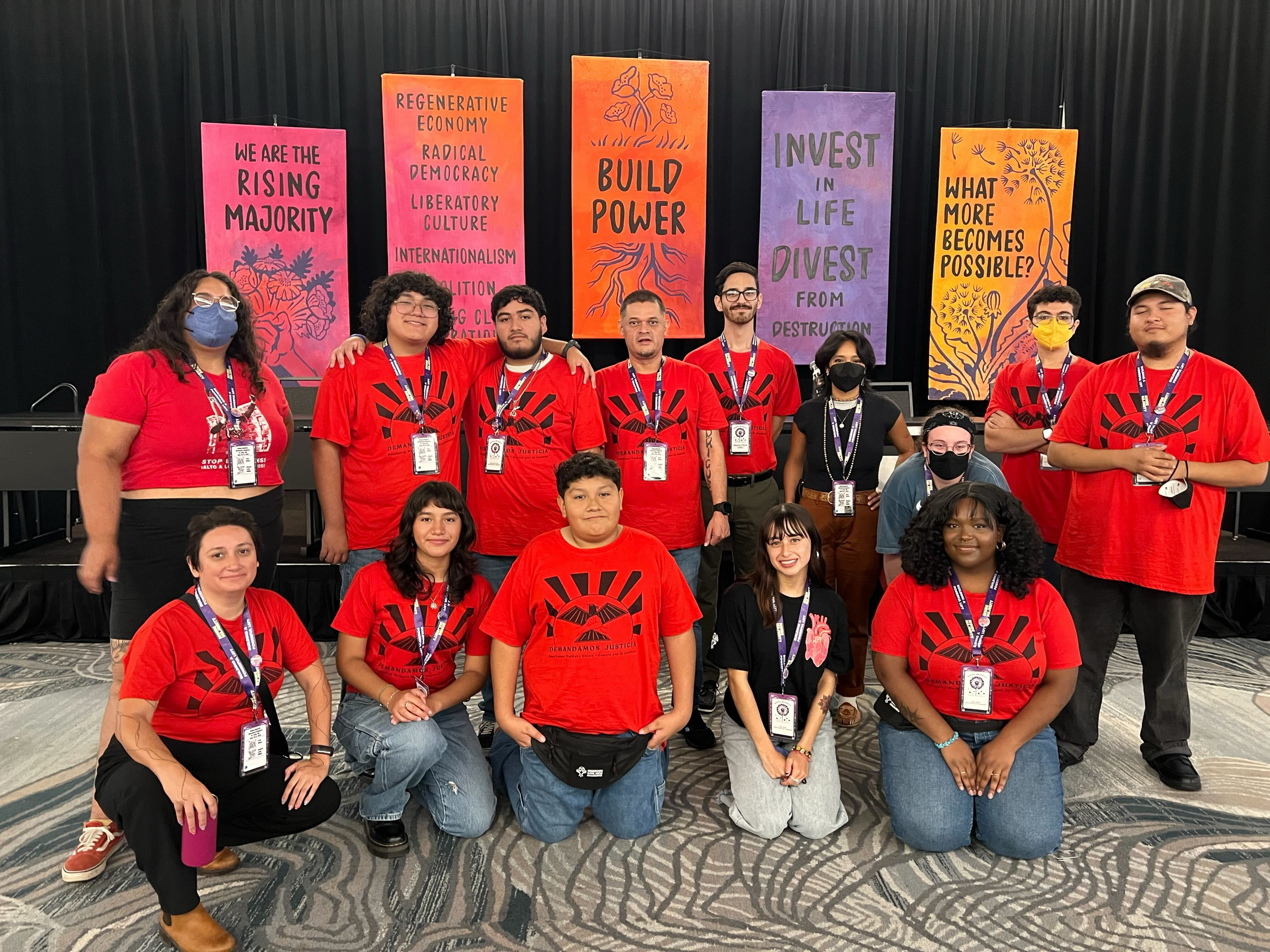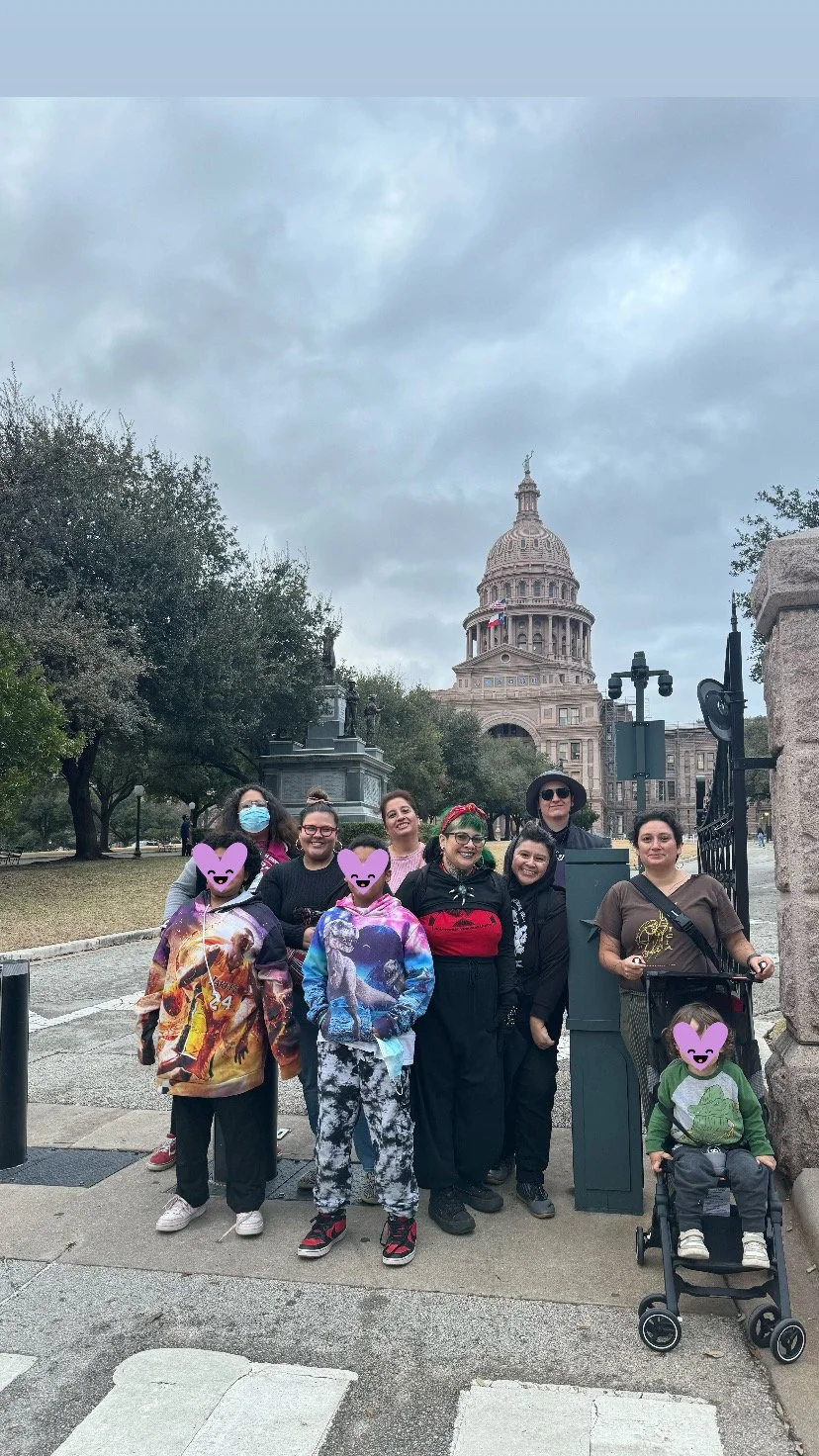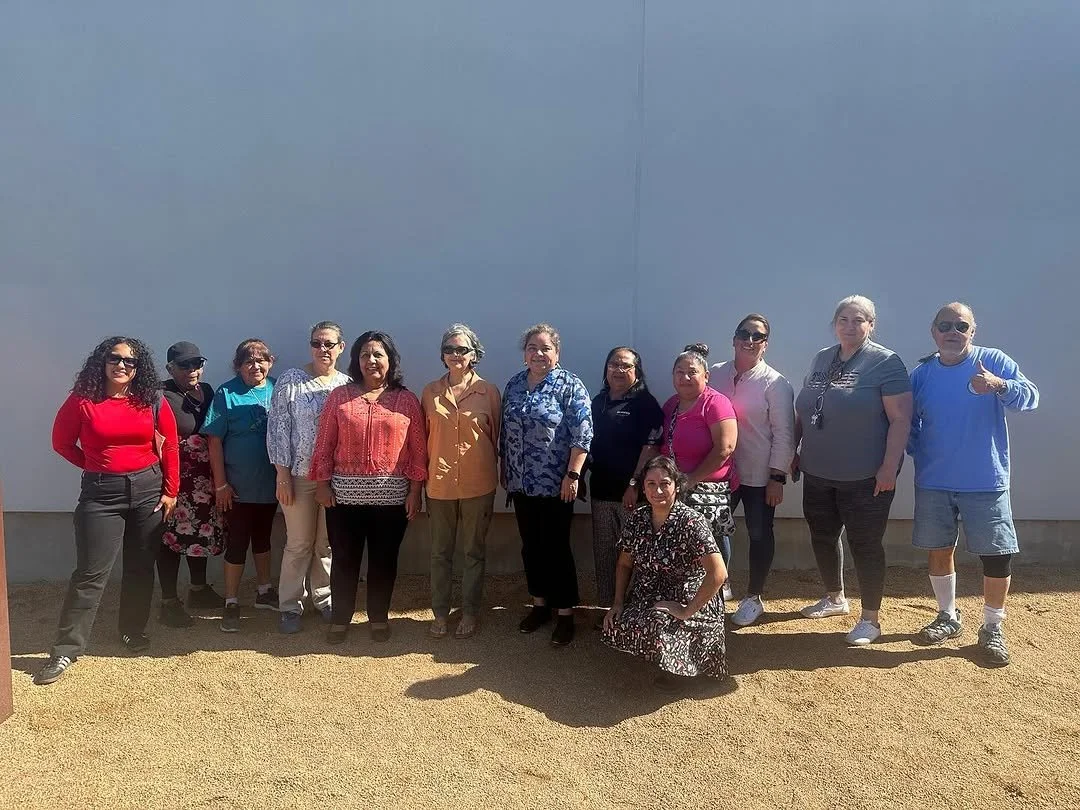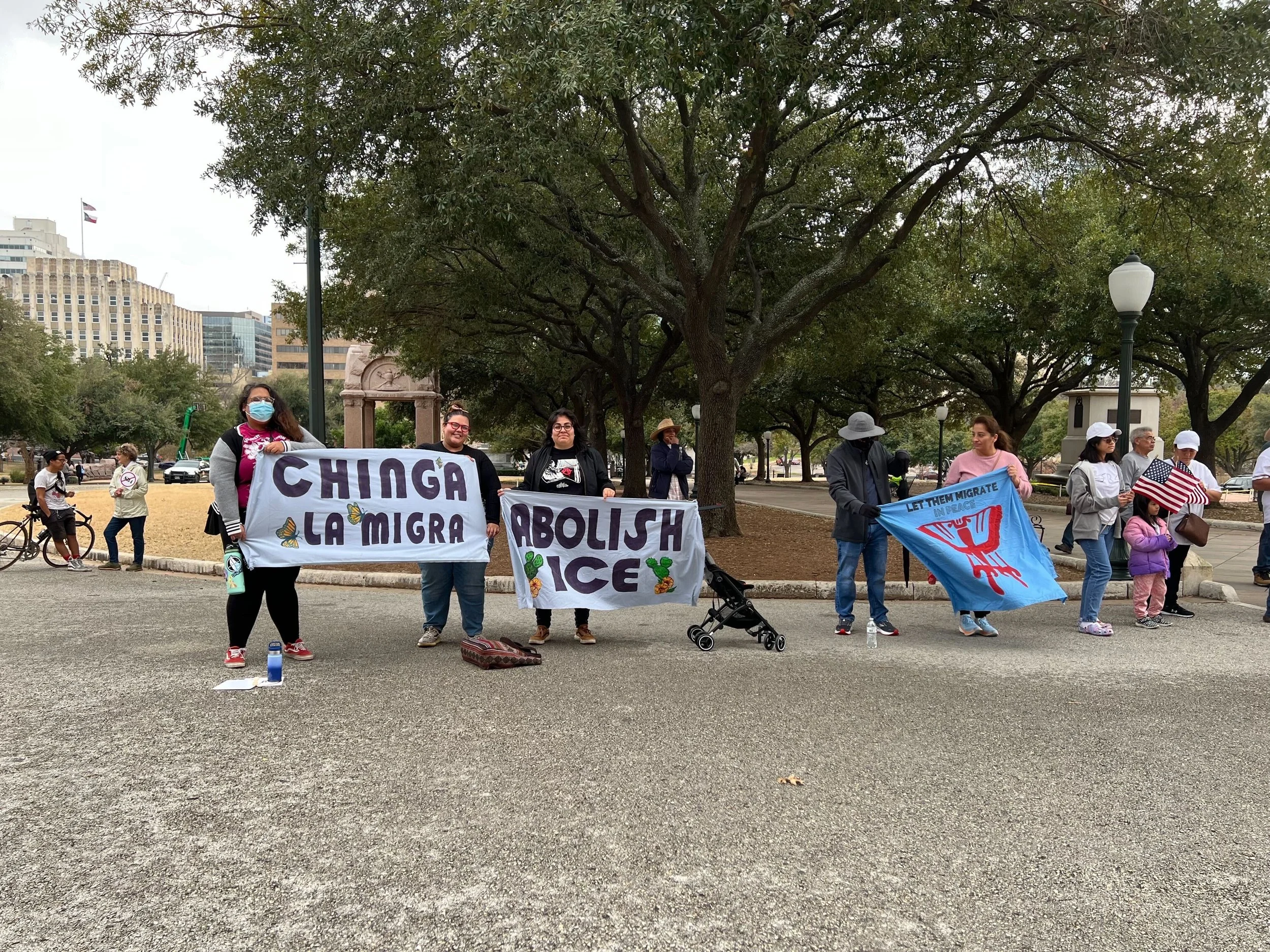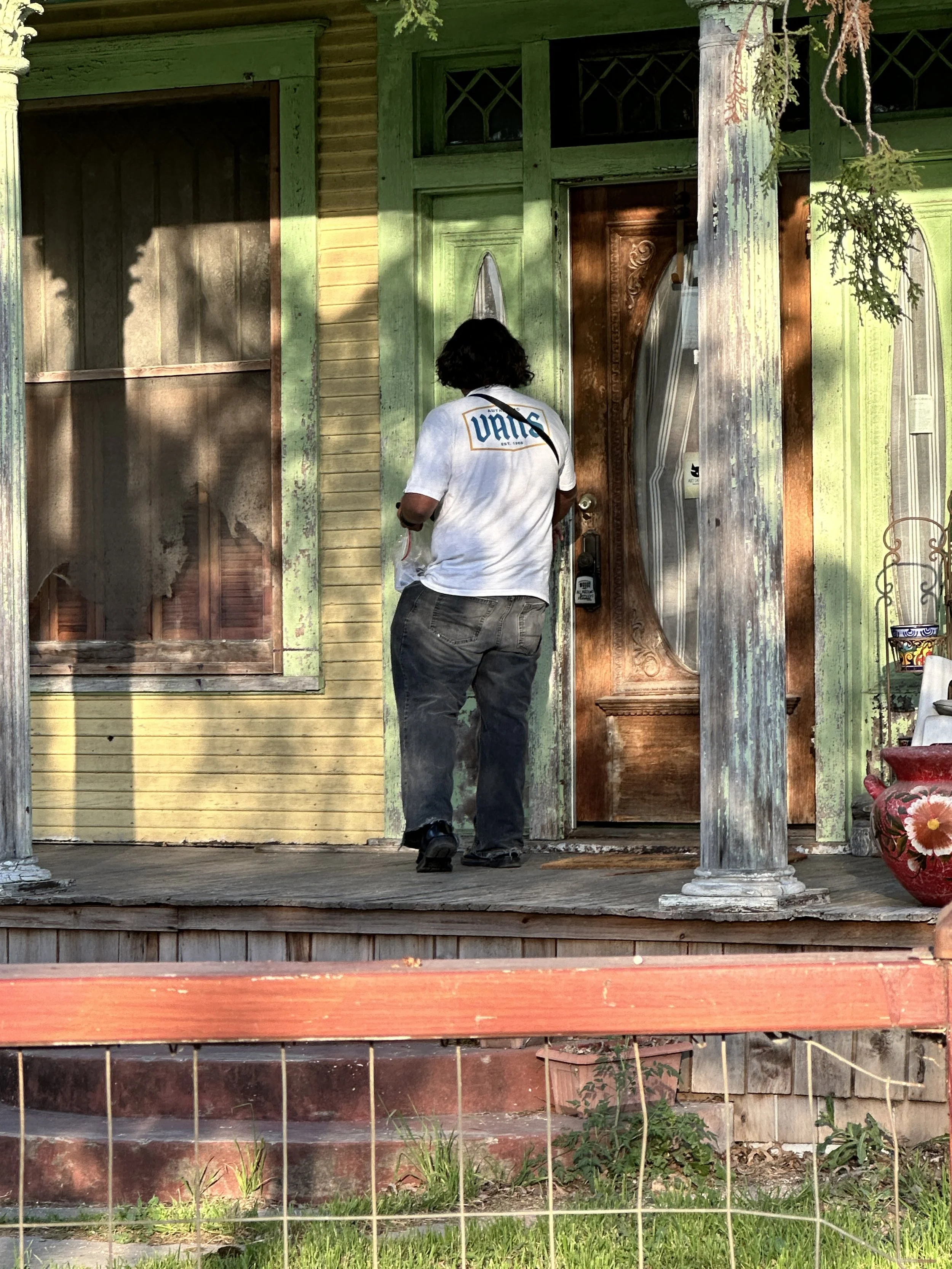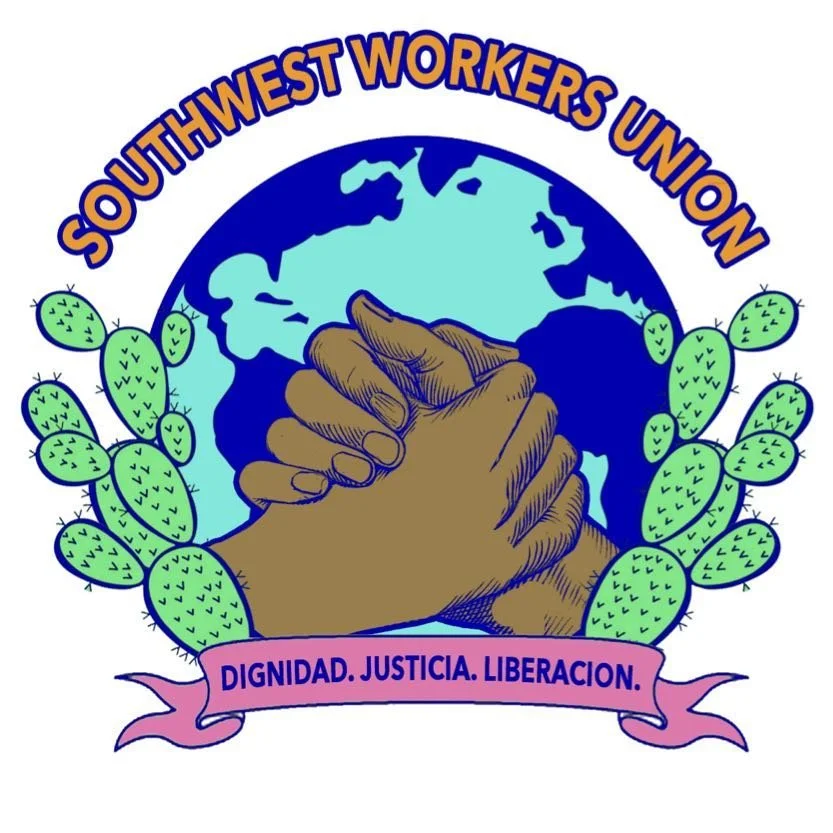The Numbers are In: 2024 Organizational Report
We release a small version of this in December 2024, after our January strategic retreat, here are the full details of our work in 2024. For further information or budget details please contact us directly.
Environmental Justice:
Committee to reevaluate and update the compliance codes for Metal Recycling Entities (MREs) and Used Auto Recycling Plants (UARPs): This work has included nominating community representatives for each council district, education, outreach, petition launch and attendance to actively offer suggestions to the committee. Hosted a community popular education meeting and a community input campaign engaging 21 people to take an action.
Collaborated with Deceleration News and UT Health to monitor heat impact in multiple parts of town with the goal is to move council to take action on heat related deaths and invest in neighborhoods with higher heat temperatures as a result of long term divestment in low income neighborhoods of color. 393 people took an action related to this issue in the form of sharing their story, supporting our work, and speaking for better city policies. While major policies were not passed we see an integration of university partnerships that allows for the scientific community to use results found at the grassroots level and implement research and recommendations from an academic level. Alongside our partners a campaign was launched with the County Commissioners and Coroners departments to begin tracking body temperature.
Partnered with UT Health to identify households interested in soil testing for heavy metals. Centro coordinated the canvassing efforts which knocked on neighborhoods near the former Kelly Air Force Base. 25 homes were identified.
Centro continued to be a leader in ensuring the local public utility is accountable to the needs of the neighborhood. Centro participates in monthly meetings with the coalition, as well as meetings directly with utility leadership to advise on programs that offer weatherization programs, community solar programs, and financial assistance. Centro also partnered on a community based utility sign up clinic that processed 24 applications for assistance and weatherization programs. We continue to fight for programs that will help residents weather the storm at home and increase their quality of life and health.
Planted two seasons of the garden focusing on herbs and flowers. The heat greatly affects raised, metal garden beds but as the temporary Roots of Change Garden continues in a micro form, we foresee the new location designs begin in the upcoming year.
Economic Justice:
Organizing around SB4, Operation Lone Star and the Crisis at the Border was challenging as there were consistent information changes both locally and nationally. Centro - SWU participated in petitions aimed at implementing San Antonio as a sanctuary city in the mist of racist laws. Due to the nature of our audience Centro SWU implemented security measures in all canvassing and meetings. Our team held two Know Your Rights Sessions partnering with local lawyers and supporting organizations, and launched a specialized outreach program that engaged populations affected by SB4 in their commute or workplace. The street team talked to 850 people and those became the base of outreach for sessions and supporting this programing. Our aim for this program was to target misinformation and provide direct resources to people at risk. The street team took to flea markets, bus stops, transit stations, and restaurants to target the most at risk populations.
In alignment with economic justice development goals, Centro’s members launched a one day pop up market with 22 vendors, directly from our membership base. This space was crucial as we train and practice cooperative economies in anticipation of the center reopening.
Supported 20 members to access enhanced library cards which acts as a form of Identification. This helps all residents have an identification. Centro provided translation, copies and accompanied members to the libraries to ensure paperwork was correct.
Leadership Development
Two Organizing School of Justice Sessions - focusing on Organizing 101, Political Analysis, Local and International Movement History, Networking and implementing organizing tools for a local campaign. The Summer focused on Heat, Racist laws, and the Fall focused on Get out the Vote education.The paid internship programs engaged 22 youth ages 17 to 25.
Hosted 28 weekly Circulo de Abuelas with 10 participants sharing traditional skills. Three three workshops were offered to the community during fairs or events, and the culmination resulted in an art show. Their work was taught and learned through a lens of feminist empowerment and resistance and culminated in a member organized art show that engaged 15 members and showcased over 30 handmade works of art.(Yearlong)
74 people were trained on civic engagement, canvassing (phone, door to door or in person canvassing) and community organizing. 25 returned to volunteer or to participate in a paid canvassing event. (Year Long)
The governance circle grew from 5 to 9 board members who were voted by the general membership. The governance circle also held biweekly sessions during 6 months to update and pass the organization by laws. This work included a deep dive into social movement histories, accountability structure, nonprofit management and member leader models. (January - May)
Distributed 875 fresh food bags to 255 households throughout 7 Community Days with the help of 88 volunteers.
Published monthly newsletters, over 10 program zines, weekly social media posts, and online blogs to engage and share our audience. 18 people helped with folding zines.
Led two nature based sessions with members. The 1st a field day with BBQ in the spring in Boerne Lake with 45 participants, the second a camping trip in July at Garner State Park with 15 participants from the Organizing School of Justice.
Hosted 6 membership meetings and an orientation aimed at creating smaller circles of leadership to discuss and plan current campaigns. Each member meeting consists of a pop ed element, the planning, and reminders or follow up. (Yearlong)
Overall the Outreach Program tried to reach 50,000 residents by phone and at the doors. We successfully talked to 9,000 residents. Out of the contacted number, 4,581 people took an action which includes attending an event, filling out a survey, volunteering or other actions. In 2024 the program outreach team trained 74 people in civic engagement tools, community organizing and local political issues.
Held weekly sessions with Circulo del Abuela on skill building and integrating political education into sessions. Each session has a goal of incorporating a traditional skill such as embroidery, sewing, silk screening with social movement. Popular education topics includes the Genocide on Palestine, Immigration & Racist laws, environmental pollution (textile recycling),
Offered $1,500 in community vouchers to membership and residents in dire need. These vouchers help people in emergency situations to access life saving care, and or avoid evictions.
Organized a solidarity trip with 14 youth members and 5 staff to attend the Rising Majority Convening in St. Louis. The purpose of the trip was to learn and build with formations that are practices base building, collaborative organizing and aligned issues and campaigns.
Hosted a movie screening and skill share engaging 30 people in making connections between the Genocide on Palestine and local anti-war efforts.
Get out the Vote - Accountable Governance
Election Day Blitz engaged voters at the polls sharing information about upcoming municipal elections and important issues. 255 people committed to voting in the next election.
Hosted a Drag King: Get Out The Vote Lotería event, featuring a 'Know Your Ballot' Lotería game with 35 people and a special Know Your Ballot Bingo.
During the Fall Get out the Vote Program canvassers talked to over 3,000 people and received 1,300 commitments to go vote. 25 canvassers were trained in phone banking, blockwalking, and in person canvassing. All canvassers also go through an organizing school that trains them in organizing, community issues and solutions.
The canvassing team led surveys to understand what Centro’s voting block looks like and develop demands that we can work towards in the next 10 years. What our organizers learned is the need to increase popular education and uplift social justice values as frequently as members encounter misinformation and hate speech.
Governance and Internal Systems
Completed a 6 month process with biweekly sessions (5 board members, 3 supporting staff) that lead to updated bylaws for the organization. Our member board dove deep into democratic structures, forms of accountability, and took inspiration from social movements past and expanded from 5 to 9 people.
One of the largest challenges was the unraveling of reliable databases. In 2024, Centro transitioned the database to the movement led program called OpenField to ensure our communities information is safe. While it is a challenge we find relief in being able to transition from systems that have been bought by oppositional forces.
Organized a Strategic Retreat (March) hosting all staff, board and key allies in a naturesome location.The two days offered alignment opportunities, strategic planning and better understanding and preparation for advancing united campaigns.15 people were hosted and 8 kids participated.
The Community Development Project advanced very little as fundraising has yet to be completed, However about 40% of the center has been completed and awaits full funds to reach a point of completion. However, a temporary space was built from two shipping containers that functions as an office space for the organization.
